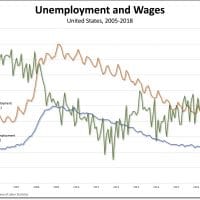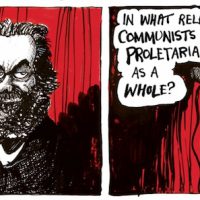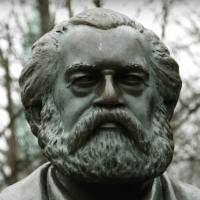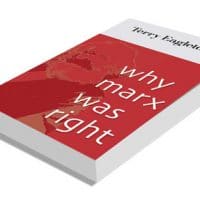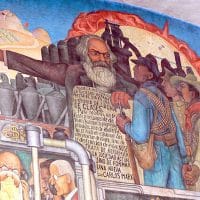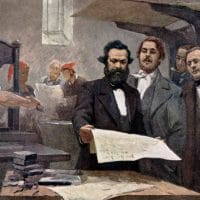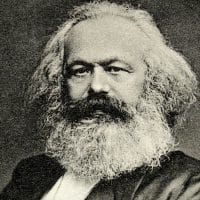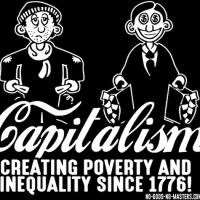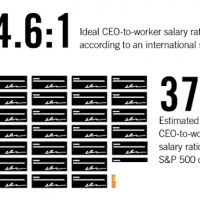-
Their beautiful recovery
Does anyone really need any additional evidence of the lopsided nature of the current recovery?
-
Marx’s critical friend
MARTIN ROWSON tells Ben Cowles what inspired him to create a comic-book version of The Communist Manifesto.
-
Letter from Britain: increasingly illiberal establishment and the challenge of Jeremy Corbyn
Britain prides itself on being a liberal state, tolerant of diverse points of view with a judicial system based on law and evidence, but its recent behavior has been anything but that, reports Alexander Mercouris.
-
K is for Karl (Episode 4)
In the fourth episode of K is for Karl, Paul Mason travels to Manchester, the birthplace of the Industrial Revolution. Here, Mason shows us how the use of human labour and the development of machinery brought about contemporary capitalism.
-
Marx at 200
A specter is haunting human affairs these days: it’s the thought that Karl Marx (on his 200th birthday this week) may have been more right than wrong about rich-get-richer bourgeois economics.
-
A new Marxian century
It’s not just that Marx’s ideas remain relevant — we’re also in the midst of a great new age of Marxian thought.
-
Karl Marx: ‘ruthless criticism of all that exists’
Two hundred years after Marx’s birth, the challenge is to reinterpret the world using his mode of thought and his method and in the process, critique the old interpretations which we have inherited.
-
Response to ‘A Call to Defend Rojava’
We are motivated by the conviction that the chief responsibility of anti-war and anti-imperialist activists living in imperialist countries is to oppose the imperialist policies of their own governments. “A Call to Defend Rojava” betrays this principle.
-
What next for the teacher’s movement?
Public school teachers in West Virginia, Oklahoma, Kentucky, and Arizona have won meaningful salary gains for themselves, and in several cases other school workers, and real although limited increases in education spending.
-
The emergence of an ecological Karl Marx: 1818 – 2018
Karl Marx was born in Trier 200 years ago today. The legacy of the political economist is fiercely contested. The Ecologist was among the first magazines to examine his ecological thinking – in an essay published in 1971. Here, GARETH DALE, an editor of the book Green Growth, examines Marx’s own claims about nature and society – and our original interpretation of them.
-
Five Questions and Answers Concerning the Presidential Elections in Cuba
If the importance of Fidel Castro in the history of Cuba is undeniable, talk about a Castro brothers’ Cuba is inaccurate on the political level.
-
Marx was born on this day–May 5
Karl Marx was born, two centuries ago, on this day–May 5. In today’s world, it’s impossible to ignore Marx, the greatest proletarian revolutionary.
-
Marx’s ecology: recovered legacy
While mainstream ecological theory has been dismissive of Karl Marx, serious research in recent decades has recovered some of his very important insights on ecological issues. The most systematic and thorough investigations on Marx’s ecological views are those of John Bellamy Foster and his friends from Monthly Review.
-
Karl Marx at 200: why the workers’ way of knowing still matters
Thinking of the relevance of Karl Marx on the 200th anniversary of his birth on 5 May 1818, takes me back to a wonderful picture of him in Algeria. It was taken in his final year in 1882. Underneath the full white beard is that familiar glint in his eye. He is up to something.
-
Capitalism, poverty and praxis
Capitalism is an economic system driven by its own immanent tendencies, which the State that presides over it normally supports, sustains and accelerates.
-
There is a structural crisis of capitalism
In this in-depth interview conducted in Dakar, Samir Amin speaks on a wide range of topics: globalisation; generalised monopoly capital; the alarming growth of inequality; the role of the state in the neoliberal era; globalisation and delinking; capitalism and modernity; the return of fascism in the contemporary capitalist world, and more.
-
Inequality and fairness
In a 2014 study, Sorapop Kiatpongsan and Michael Norton asked about 55,000 people around the globe, including 1,581 participants in the United States, how much money they thought corporate CEOs made compared with unskilled factory workers.
-
K is for Karl (Episode 3)
One day the people of Paris decided to stop work, build barricades and overthrow the government. That’s what we call a revolution.
-
Karl Marx’s insights retain their clout and relevance
Two centuries later, the ‘father of communism’ should not be judged on disciples’ excesses.

